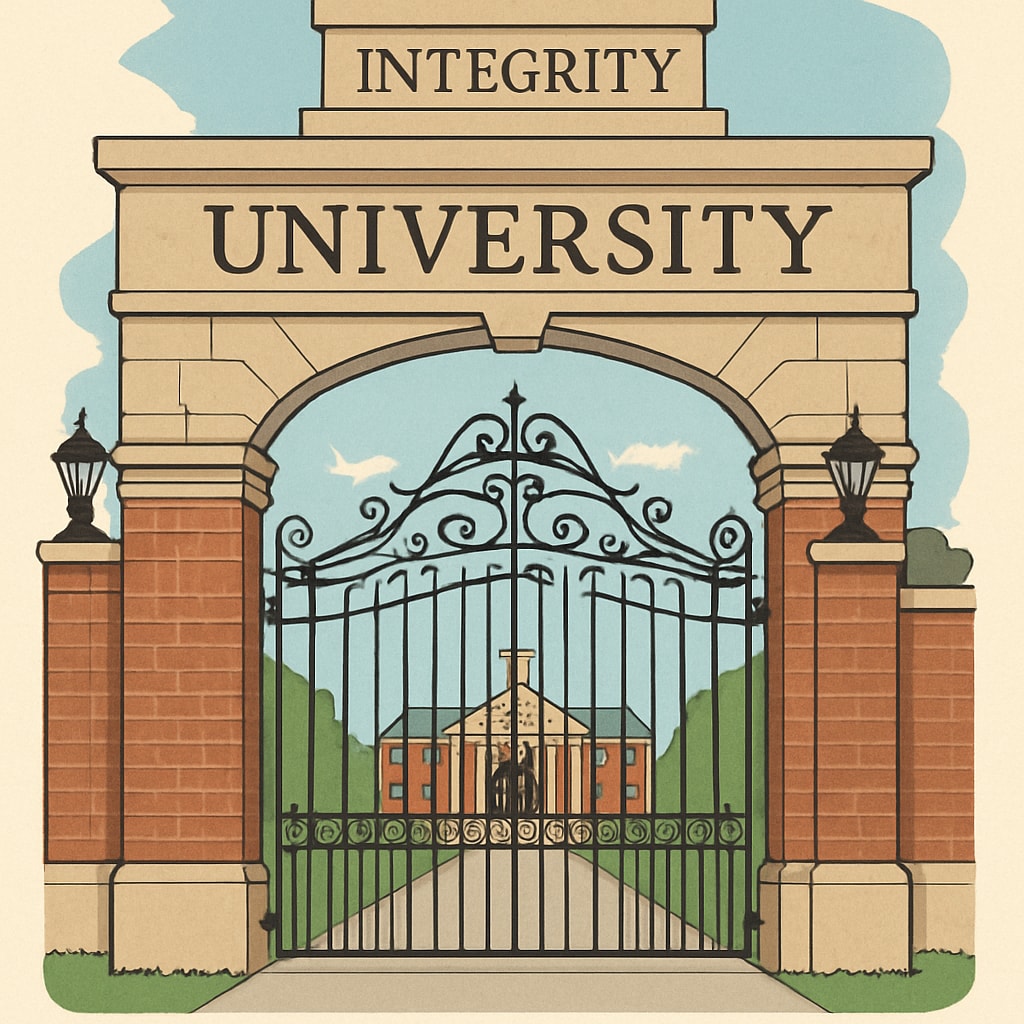In the competitive world of college admissions, submitting an application that stands out can feel like a make-or-break moment. However, resorting to dishonest tactics—such as falsifying achievements, exaggerating extracurricular involvement, or manipulating academic records—can have far-reaching consequences. The impact of dishonesty in college applications goes far beyond the immediate risk of being caught; it can derail a student’s education, reputation, and career prospects. In this article, we explore the dangers of misrepresenting information in college applications and why maintaining integrity is paramount.
The Temptation to Cheat: Why Students and Families Take the Risk
With acceptance rates at top universities hitting record lows, it’s no surprise that some students and parents feel immense pressure to stand out. Unfortunately, this pressure can push individuals to engage in unethical practices. For example, some may fabricate leadership roles, claim false awards, or even hire services that design fraudulent application materials.
Often, students justify these actions with the belief that “everyone does it” or that it’s a harmless way to level the playing field. However, this mindset overlooks the ethical implications and the potential consequences if the deception is uncovered. Universities are increasingly vigilant, using advanced verification processes and social media checks to detect inconsistencies in applications.

Consequences of College Application Dishonesty
The repercussions of dishonesty in college applications can be severe. Here are some of the most significant consequences:
- Rescinded Admissions: If a university discovers a student lied on their application, their acceptance can be revoked—even after they’ve started classes.
- Permanent Records: Misrepresentation can lead to disciplinary actions that become part of a student’s permanent academic record.
- Reputation Damage: Being caught can tarnish a student’s reputation, making it harder to transfer to other schools or secure internships and jobs.
- Legal Implications: In extreme cases, falsifying documents could lead to lawsuits or criminal charges, especially if financial aid fraud is involved.
For example, the highly publicized 2019 college admissions bribery scandal demonstrated how attempts to manipulate the system can result in legal action and public disgrace for both students and their families.

Long-Term Impact on Careers and Personal Growth
Even if students manage to evade detection during the admissions process, the effects of dishonesty can resurface later in life. Employers often verify educational backgrounds, and discrepancies can lead to job losses or damaged professional relationships. Dishonesty also deprives students of the opportunity to reflect on their authentic strengths and weaknesses, which is essential for personal growth.
Moreover, ethical lapses during college applications can set a troubling precedent. If students begin their academic careers with dishonesty, they may find it easier to justify further unethical actions, such as cheating on exams or plagiarizing assignments, perpetuating a cycle of unethical behavior.
Why Integrity Matters in College Applications
At its core, the college admissions process is about finding the best fit between students and institutions. Honesty ensures that students are admitted based on their genuine qualifications, which increases their likelihood of thriving in their chosen academic environment. Here’s why integrity is crucial:
- Fairness: Honesty ensures a level playing field for all applicants, preventing those who cheat from unfairly gaining an advantage.
- Character Development: The application process is an opportunity for students to reflect on their achievements and aspirations truthfully.
- Building Trust: Universities value trust and transparency in their students, laying the foundation for a positive academic relationship.
As emphasized by organizations like the National Association for College Admission Counseling (NACAC), integrity in the application process not only benefits individual students but also upholds the credibility of the entire admissions system.
How Educators and Families Can Promote Ethical Behavior
Preventing dishonesty in college applications requires a collaborative effort among educators, families, and students. Here are some practical steps to encourage ethical practices:
- Foster Open Communication: Parents and counselors should create a supportive environment where students feel comfortable discussing their concerns and challenges.
- Set Realistic Expectations: Emphasize that success is not solely defined by attending a prestigious university but by finding the right fit for the student’s goals and interests.
- Educate on Consequences: Schools should educate students about the potential repercussions of dishonesty, using real-life examples when appropriate.
- Provide Resources: Offer workshops and guidance on crafting genuine applications, showcasing that honesty and effort are valued more than perfection.
By fostering a culture of integrity, educators and families can help students build the character and resilience needed to succeed authentically in their academic and professional journeys.
Conclusion: The True Cost of Dishonesty
While the pressure to excel in college admissions is undeniable, the risks of dishonesty far outweigh any perceived benefits. False information in college applications can result in immediate penalties, long-term damage to careers, and the loss of personal integrity. Students, parents, and educators must work together to uphold honesty and transparency, ensuring that the admissions process reflects genuine merit and potential. After all, the foundation of a successful future is built on trust, not deception.
As the old adage goes, “Honesty is the best policy.” Nowhere is this truer than in the college admissions process, where integrity is not just a virtue but a necessity for long-term success.


